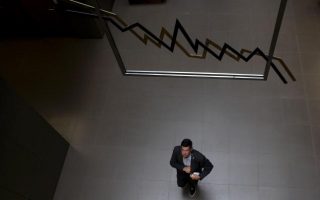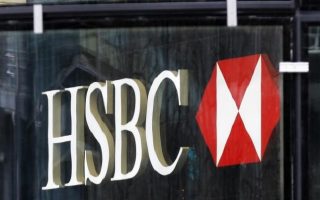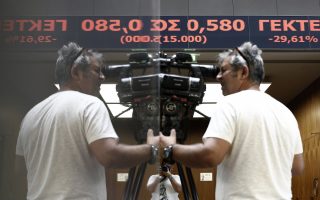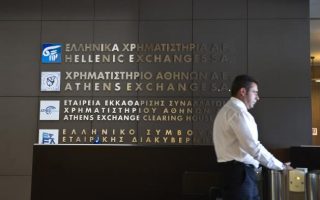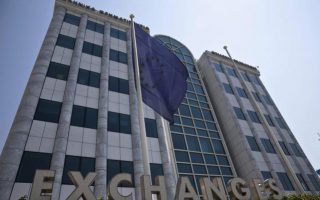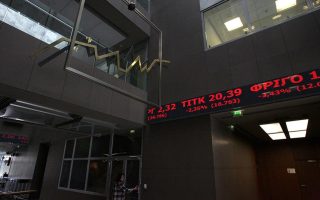Greek stocks take historic beating as bourse reopens
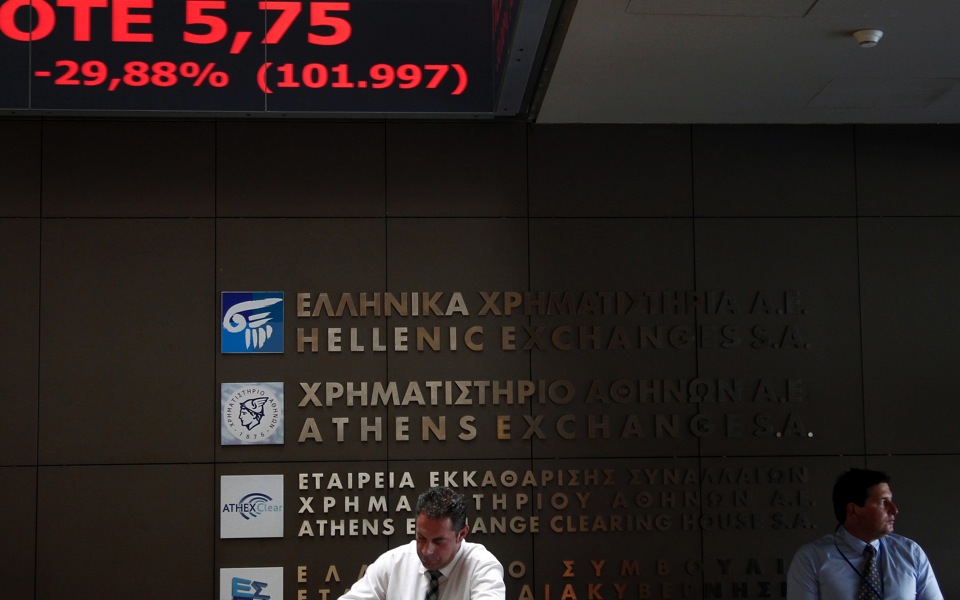
Greece's stock exchange took a historic beating Monday as trading resumed after a five-week shutdown forced by capital controls, with the main index registering its greatest-ever drop drop of 16.23 percent and bank shares particularly hard hit.
The ATHEX index plunged to 668.06 points on its worst fall in nearly 30 years amid a worsening economic climate and the prospect of early elections in the coming months. The previous worst loss in the stock market's history was a 15.03-percent drop in 1987.
"The situation in Greek equity markets will have to get a lot worse before it gets better," said Luca Paolini, Pictet Asset Management's chief strategist in London. "There are still critical risks to be resolved."
The country's main banks took a heavy blow, with National Bank and Piraeus falling to the maximum allowed level of minus 30 percent.
Alpha Bank finished at minus 29.81 percent while Eurobank fell 29.86 percent.
Investors also offloaded unreservedly shares in all the top Greek companies, including gaming giant OPAP, main electricity provider PPC, top telecoms operator OTE and leading refiners HELPE, which were also shedding between 12 and 23 percent.
"Pressure by sellers was high. It is logical and anticipated by everyone," stock market chairman Socrates Lazaridis told Bloomberg TV, noting that he expected the market to stabilize in a month's time.
"After five weeks of non-transacting ability, it was important to incorporate the changes that have taken place in the international environment of capital markets, and also on the local environment where there was a number of important changes," Lazaridis said.
"We were not expecting something different today," said analyst Manos Hatzidakis of Beta Securities.
"The stock exchange has not been closed for a month since 1974… This is a risk factor especially for major investors."
"This is reflected today with great intensity… It is a sign of the insecurity that pervades the market," he said.
The stock exchange operates as normal for foreign investors but local traders face limits on their transactions as part of the capital controls imposed by the government last month.
As a result of the restrictions, Greek investors cannot buy securities with money from their bank accounts in Greece. They will, however, be able to use foreign bank accounts or make cash transactions.
Lazaridis, the stock market chairman, noted that up to 65 percent of investors present on the Athens bourse are foreign.
The country's lenders are in a vulnerable position because of outflows of billions of euros from deposits over the past six months.
Some 40 billion euros ($44 billion) has been withdrawn from Greek banks since December, according to the country's banking association, as depositors hedged their bets on whether the country would stay in the eurozone.
The reopening of the stock market comes after senior EU and IMF auditors held their first meetings with Greek ministers to finalize a new three-year bailout for the country that could be worth up to 86 billion euros ($94 billion).
Running contrary to his promises to eliminate austerity once in power, the bailout has put major strain on Prime Minister Alexis Tsipras.
The 41-year-old premier faced a mutiny among his lawmakers last month and will hold an emergency party congress in September to avoid a full-fledged split.
Tsipras has warned that early elections – the fourth in three years – will be called if his lawmakers refuse to ratify the bailout in parliament.
The last trading session on the Athens stock exchange was on June 26, ending a few hours before Prime Minister Alexis Tsipras announced a referendum on the stringent bailout conditions demanded by Greece's international creditors.
In response, worried Greeks rushed to withdraw cash from ATMs, prompting the government to impose capital controls from June 29 and announce the closure of the country's banks and the stock exchange.
The banks reopened on July 20, but withdrawals and money transfers abroad remain restricted.
The capital controls have also forced many companies to send staff on mandatory vacation and disrupted the import of a wide array of goods, raising the prospect of shortages in the autumn according to market insiders.
A survey by a small traders association found that 51.2 percent of small and medium-sized companies saw their sales drop by more than 50 percent since capital controls were imposed.
Some 60,000 companies have requested to relocate to neighboring Bulgaria, another association of Greek traders said last month.
The Greek economy is already forecast to contract by around 3.0 percent this year.
[AFP]
